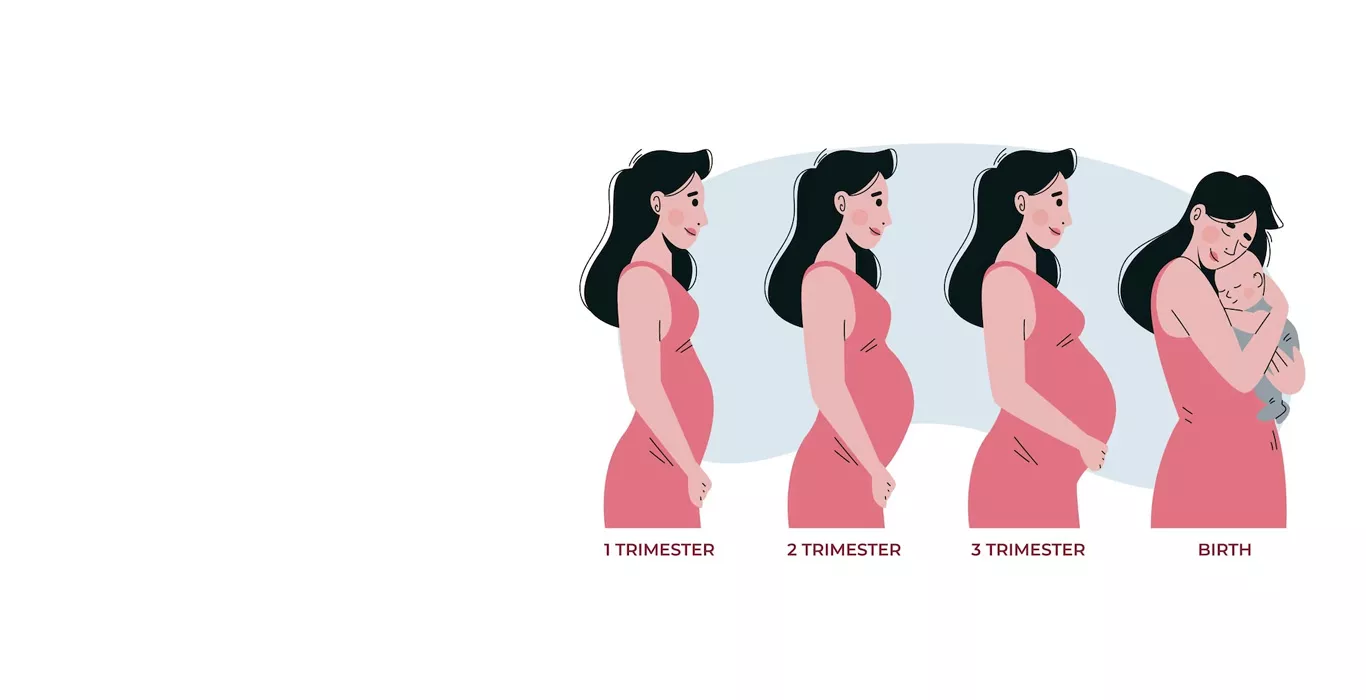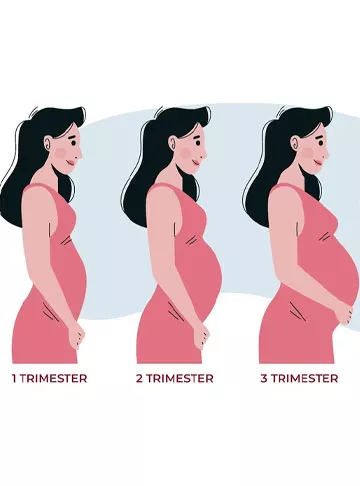Embarking on the journey of parenthood can be both exciting and challenging, especially for couples facing infertility issues. With advancements in medical technology and expertise, In Vitro Fertilization (IVF) has emerged as a ray of hope for those longing to conceive. If you're considering or undergoing IVF treatment, it's natural to have questions about the progression of pregnancy, safety concerns, and the symptoms you might experience. In this article, we'll guide you through week-by-week pregnancy after IVF, discussing symptoms, safety measures, and what to expect during this remarkable journey.
IVF Pregnancy: A Milestone-Based Journey
IVF pregnancy, like any other pregnancy, is marked by key milestones as the fetus develops. Let's discuss the IVF pregnancy week by week symptoms:
Weeks 1-4: The Beginnings
The first few weeks after embryo transfer are crucial as the fertilized egg implants itself into the uterine lining. The 1 to 4 weeks of IVF pregnancy symptoms include mild cramping, similar to what's felt during a regular pregnancy. Some women might also notice light spotting, which is known as implantation bleeding. While it's still early, many women can't help but wonder, "How many weeks pregnant am I after IVF?" Typically, pregnancy is counted from the date of egg retrieval, adding about two weeks to your embryo's age.
Weeks 5-8: Formation of the Embryo
As your pregnancy progresses, the embryo rapidly develops its organs and systems. At this stage, symptoms like breast tenderness, fatigue, and mild nausea might become more noticeable. These are positive signs that the pregnancy is progressing as expected. Additionally, you might have your first ultrasound around the sixth or seventh week to confirm the presence of a healthy heartbeat.
Weeks 9-12: First Trimester Milestone
By this point, the embryo has transformed into a fetus, and the placenta is now responsible for providing essential nutrients. Morning sickness might be at its peak during this period, and you might find yourself experiencing heightened emotions. This is also the time when your healthcare provider might recommend certain prenatal tests to ensure the well-being of both you and the baby.
Weeks 13-16: Easing into the Second Trimester
As you enter the second trimester, many of the early pregnancy symptoms might start to subside. You'll likely experience a surge in energy, and your baby bump might become more noticeable. It's a good time to start considering a balanced diet and gentle exercises that are suitable for pregnant women.
Weeks 17-20: Feeling Your Baby Move
During this phase, you might experience a milestone moment – feeling your baby's first movements often referred to as "quickening." These gentle flutters are a reassuring sign of your baby's growth. Backaches and minor abdominal discomfort might appear, but they are usually manageable with proper care.
Weeks 21-24: Viability and Preparation
As your pregnancy advances, your baby's chances of survival outside the womb increase. The fetus's organs are developing further, and you might notice more weight gain and skin changes. It's a good time to start considering childbirth and parenting classes to feel more prepared for the upcoming journey.
Weeks 25-28: Third Trimester Begins
Welcome to the final trimester! With your due date drawing closer, you might experience shortness of breath and increased pressure on your abdomen. Regular check-ups and discussions about birth plans with your doctor become more important during this phase.
Weeks 29-32: Nearing the Finish Line
As your body continues to change, you might notice Braxton Hicks contractions, which are your body's way of preparing for labour. Backaches and discomfort might persist, but focusing on relaxation techniques can help alleviate some of these sensations.
Weeks 33-36: Final Preparations
In these weeks, your baby is likely settling into the head-down position in preparation for birth. While your belly is now significantly larger, you might experience increased fatigue and trips to the bathroom as your baby's head presses against your bladder.
Weeks 37-40: Ready to Welcome Your Baby
As you approach your due date, excitement and anticipation are likely at their peak. You might notice your baby "dropping" as they settle deeper into your pelvis, making breathing easier. If you haven't already, now is the time to finalize your birth plan and ensure all the necessities are in place for your little one's arrival.
So, after how many weeks is IVF pregnancy safe?
Safety is a paramount concern for every expectant parent, especially for those who've undergone IVF. Research indicates that the risk of complications decreases significantly after the 12-week mark. By this time, the pregnancy is considered relatively stable, and the chances of miscarriage are greatly reduced. However, it's important to remember that every pregnancy is unique, and regular communication with your healthcare provider is essential to ensure the well-being of both you and your baby.
Frequently Asked Questions
1. Is pregnancy after IVF considered high-risk?
IVF pregnancy can be highly safe provided patients proceed as per an expert’s instructions. They must discuss the possibility of multiple pregnancies, OHSS, and other side effects beforehand.
2. How soon after IVF can you hear the heartbeat?
A heartbeat can usually be detected through ultrasound around 6 to 7 weeks after a successful IVF procedure.
3. How do you maintain IVF pregnancy?
IVF pregnancy can be easily managed just like a normal pregnancy. Take the help of your medical practitioner/gynaecologist to get a holistic understanding of the necessary precautions and care you must take.
4. Is the IVF due date accurate?
IVF pregnancy calculator can help you know your due date. Generally, your due date falls 38 weeks after the date of egg retrieval. However, this cannot be 100% accurate.
Conclusion
The journey of IVF is remarkable and a transformative experience. From the early stages of implantation to the final weeks of preparation, each phase is marked by distinct symptoms and milestones. While it's natural to have questions and concerns, remember that you're not alone. With world-class technology, expert medical teams, and a supportive environment, Indira IVF is here to guide you every step of the way. Our 150+ clinics are open in different states PAN India and with a team of 330+ fertility specialists, we have helped 1,60,000+ couples complete their IVF pregnancy successfully. Embrace this parenthood journey with hope and positivity. Visit your nearest Indira IVF centre today, or call: 18003092323.
Pregnancy Calculator Tools for Confident and Stress-Free Pregnancy Planning
Get quick understanding of your fertility cycle and accordingly make a schedule to track it















